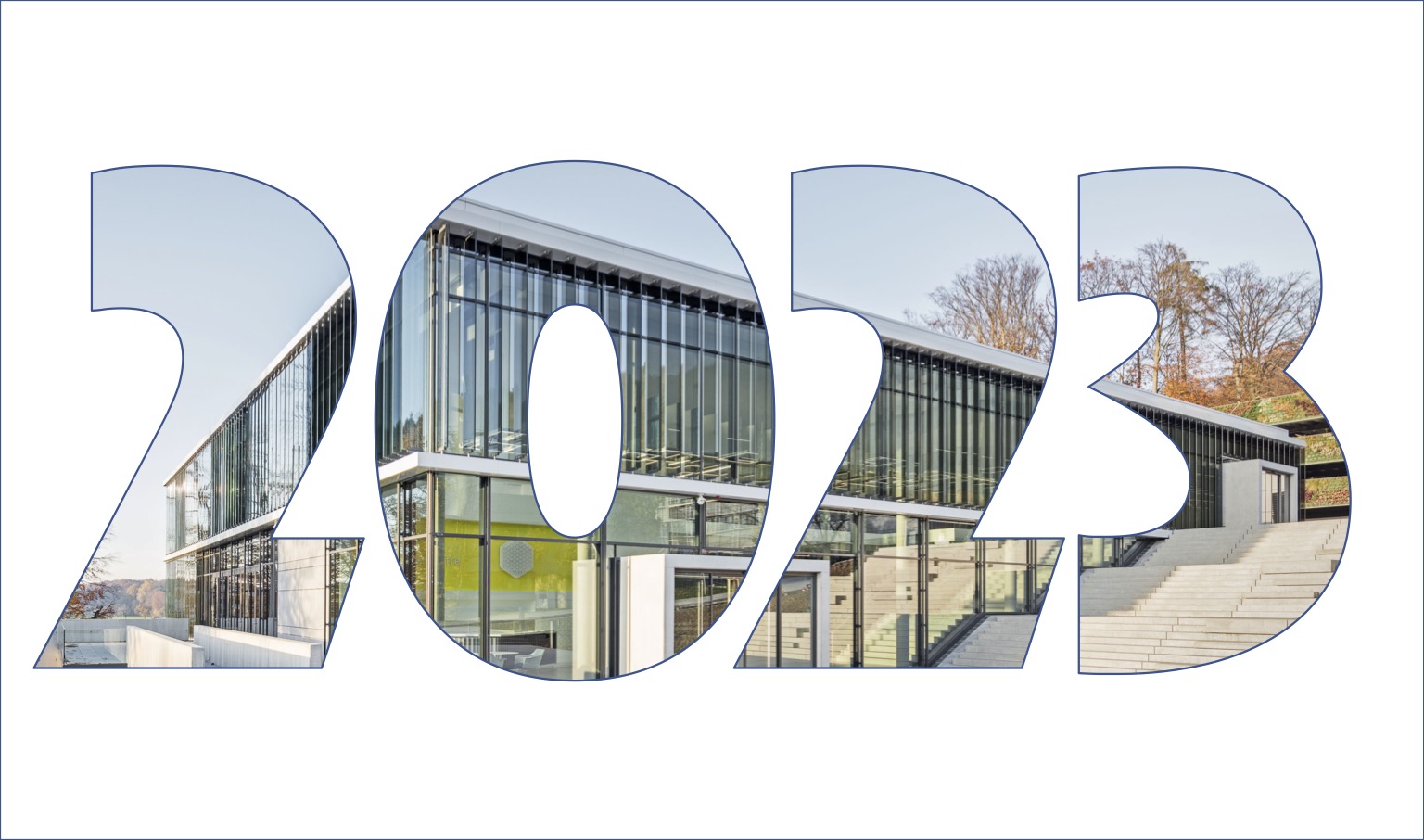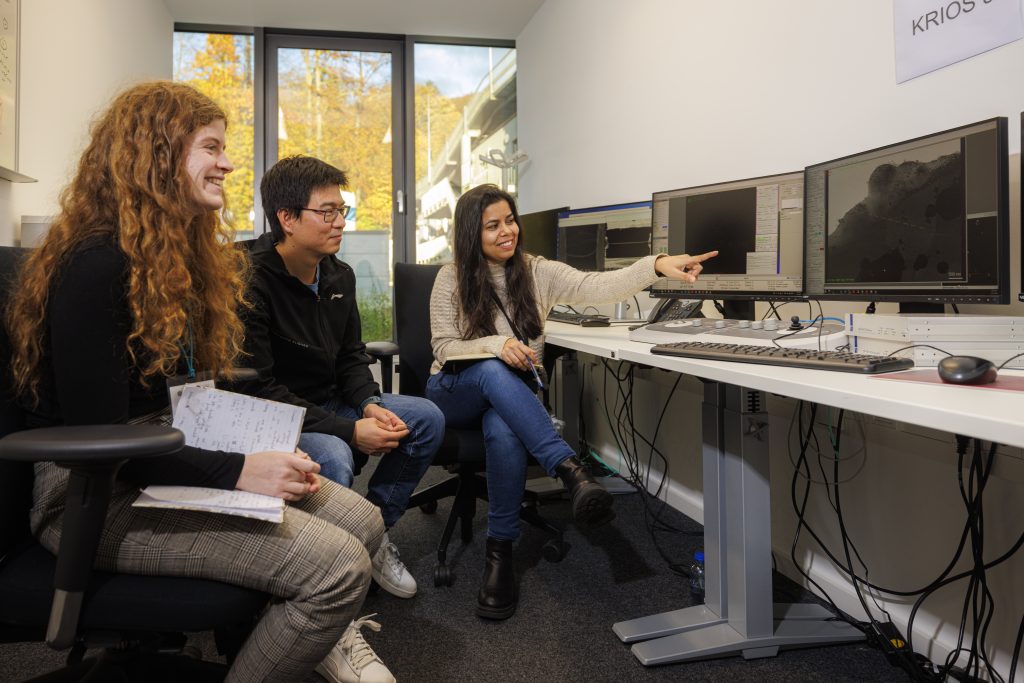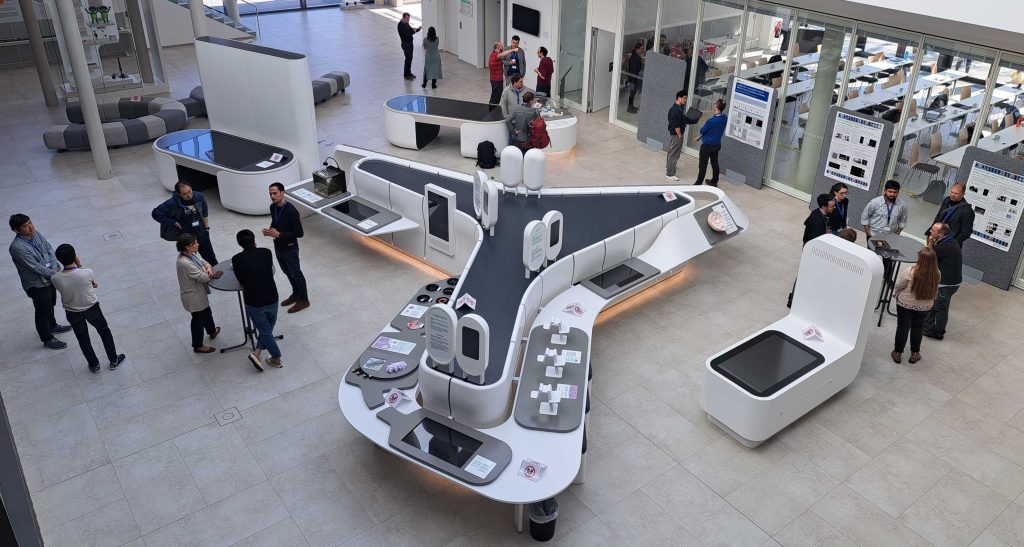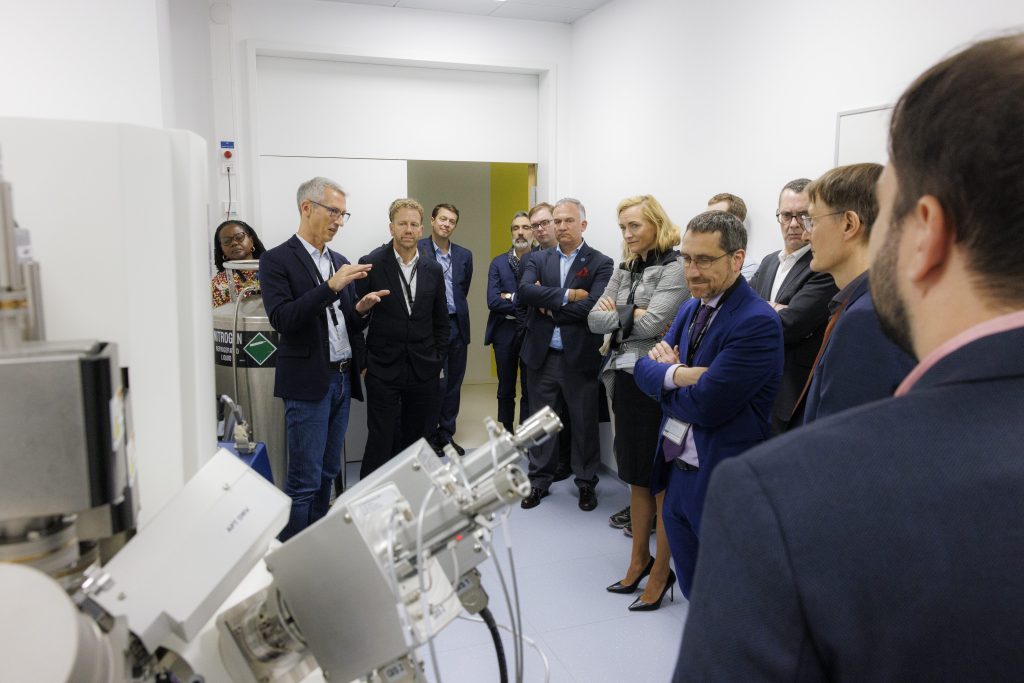EMBL IC Highlights of 2023

2023 was for us, the EMBL Imaging Centre (IC) team, a year of growth and expanding our services to the user community. We are a team of dedicated researchers committed to service and with our state-of-the-art imaging technologies we supported our scientific users, resulting in a number of important research publications.
Let’s take a look at some of the highlights from the year.
Service at the EMBL IC was in high demand in 2023, with a total of 114 user projects and 62 external visitors onsite. These visitors came from 23 different countries, illustrating the global reach of the centre. In addition, 10 companies also utilised the services offered by the centre, a sign that we are also building a reputation for high quality service in industry.
For 2023, it is worth noting that we saw increasing demand for cryo-electron tomography and correlative light and electron microscopy (CLEM) services, as also pointed out by Simone Mattei (our cryo-EM Team Leader) in his recent interview to Euro-BioImaging “Cryo-ET: Imagination is the Limit”. These techniques allow researchers to unravel the ultrastructure of molecules in their natural context. In combination with fluorescence labelling and light microscopy, targeting of those structures can be done with molecular specificity. Combined, we can now visualise and study biological structures in unprecedented detail, leading to new insights and discoveries. To push our service technologies and workflows beyond current limits, we continue to work closely with academic as well as industry partners. With one of them, ZEISS Research Microscopy Solutions, we have deepened our collaboration in a long-term partnership agreement.

Our goal is to enable our users to succeed in their research. We are proud that the EMBL IC service supported the publication of 16 research papers in 2023 (find the full list here). These papers covered a wide range of topics and utilised various imaging techniques. For instance, in the field of cryo-EM, the centre contributed to the publication of Marie Prevost et al.’s study on the human α7 nicotinic receptor, uncovering a novel potentiating mechanism of regulation that opens new paths for drug design. In CLEM, Lucía Torres-Sánchez et al. revealed the structures of the P. aeruginosa FleQ-FleN master regulators, shedding light on the control of motility and bacterial biofilm formation. Additionally, in the field of Light Microscopy, our optical engineer Rory Power, in collaboration with the lab of Jonas Ries, published in a pre-print a guided protocol to allow researchers to establish high-end automated 3D multi-color single-molecule localization microscopy, as offered by the EMBL IC, in their own laboratories.
Last June, we hosted the first official gathering of the consortium partners involved in the IMAGINE project, which aims to develop new imaging technologies that can bridge the gap between the molecular scale of structure and the organismal scale of function and validate them for services in research infrastructures. This is a challenging task, and the IMAGINE consortium, under the leadership of EMBL, has brought together leading European technology developing institutions, along with industrial partners and pan-European Research Infrastructures (RIs) in structural biology, bioimaging, and marine biology. The goal is to not only make these technologies available in highly specialised central facilities and standard laboratory models, but also to make them accessible to a wide range of samples and researchers through the RIs.

The EMBL IC is not only dedicated to providing top-notch service but also to training and educating the current and next generation of researchers. In 2023, the centre hosted eight training events, including symposia, courses, and workshops. These events covered a wide range of topics, such as the MINFLUX Symposium and the iNEXT- Discovery hands-on workshop on Cryo-FIB lamella preparation & Cryo-electron Tomography, both hosted last April. In addition, through its job shadowing programme, the EMBL IC welcomed seven imaging scientists from Germany, Switzerland, USA, France, and the UK. This programme allows researchers and imaging facility staff to gain hands-on experience on the instruments and approaches and learn from us about new workflows used in the EMBL IC, as highlighted in the article “Dispensing Microscopy Expertise”.

Furthermore, the EMBL IC also opened its doors to many visitors, with over 50 tours conducted in 2023. One of the notable visits was in the occasion of the high level round table “AI in biology and health” event, where Jan Ellenberg gave a tour of the facility to Germany’s Federal Minister for Health Professor Karl Lauterbach, UK’s Parliamentary Under Secretary of State at the Department of Health and Social Care Lord Nick Markham CBE, as well as representatives from the World Health Organisation, the UK Medical Research Council, and senior leadership of the Instituto Italiano di Tecnologia, Google DeepMind, and GSK, who were all impressed and excited by the technology and research being conducted.
Last but not least, 2023 also marked the inauguration of the World of Molecular Biology exhibition at the EMBL IC. This permanent exhibition, as featured in the news article “Federal Research Minister Bettina Stark-Watzinger Visits EMBL Exhibition”, introduces EMBL, showcases the latest advancements in molecular biology and imaging, and allows visitors to interact with the technology and research at EMBL. On the exhibition’s homepage all interested can book guided tours, the frequency of which will be further increased in 2024 due to the high demand.
In conclusion, 2023 was a remarkable year for the EMBL IC, with a record number of projects completed, many publications supported, and many new visitors welcomed. Our dedication to providing exceptional service, training international researchers, and sharing our knowledge and expertise with academia and the public has grown further over the past year, and we hope that our visitors and partners appreciate it as well. With continued advancements and technology innovations, we are looking forward to continue this trajectory in the coming years. You are welcome to contact us with your project proposal or questions via ic-contact@embl.de.
We invite everyone to watch out for our homepage and follow our official LinkedIn and Twitter/X account @EmblImaging for regular announcements on new services and events. We are excited to announce that the first EMBL IC User Symposium will be happening on 17-18 October 2024 and registrations will open in Spring. This symposium will be an excellent opportunity for our users to gather and network. Stay tuned for more updates! We look forward to welcoming you to the EMBL IC and being a part of your groundbreaking research.